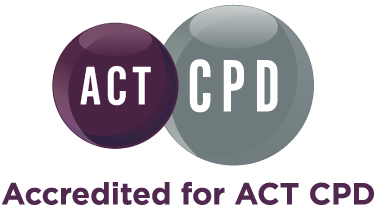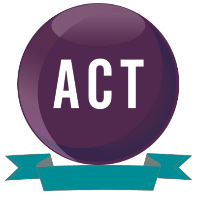The launch of Bitcoin in 2009 marked a major milestone in the development of blockchain technology and digital assets. Since then, the awareness of these emerging technologies has gradually spread across various industries, and they are now part of most strategy discussions. As blockchain technology and digital assets conquer the mainstream, treasurers will need to adapt to new technologies, investment opportunities, and regulatory frameworks.
Both courses are delivered in partnership with Zanders.
IS THE COURSE RIGHT FOR YOU?
Course One – Introduction to Blockchain & what is Bitcoin
- A treasury or banking professional looking to learn about blockchain fundamentals and you want a basic introduction to Blockchain technology and cryptocurrencies
- A treasury professional who needs to adapt to elements of Blockchain systems (e.g. bitcoin)
Course Two – Key trends, Blockchain in treasury & the impact on corporate treasury
Building on the content covered in course one, attendance at this course assumes you understand blockchain and are familiar with the base technology and terminology. Course two is perfect if you are looking to deepen your knowledge of key blockchain trends like Decentralised Finance (DeFi), Non-fungible Tokens (NFTs) and the metaverse. If not, then we recommend you book both courses one and two together.
- Someone who wants to understand how the metaverse will impact corporate treasury departments
- A treasury professional who needs to adapt to elements of Blockchain systems (e.g. Defi, stablecoin, metaverse)
- A treasury professional keen to learn about live use cases of blockchain for corporate treasury activities
WHAT WILL YOU GAIN FROM THE COURSE?
As blockchain technology and digital assets conquer the mainstream, treasurers will need to adapt to new technologies, investment opportunities, and regulatory frameworks.
Course One will equip you with an introduction to blockchain and Bitcoin.
Course two will equip you with a deeper understanding of blockchain and the key trends like Decentralised Finance (DeFi), Non-fungible Tokens (NFTs), the metaverse, and the impact on corporate treasury.
Attending both courses will equip treasurers with the knowledge and skills necessary to navigate these changes and take advantage of new opportunities presented by blockchain technology, DeFi, NFTs, and the metaversers to give you a solid understanding of how blockchain technology works and discuss how these technological developments will impact treasurers.
 ACT members who attend either or both courses can count it towards their CPD learning and should record this in their CPD log. For more information on the ACT’s CPD scheme, visit www.treasurers.org/cpd
ACT members who attend either or both courses can count it towards their CPD learning and should record this in their CPD log. For more information on the ACT’s CPD scheme, visit www.treasurers.org/cpd
 A recording of the course and presentation material, which you can access online for 60 days or download, and a digital badge to share with your network to showcase your achievement. Our training courses are regularly reviewed and updated, so when you display your badge on your email footer or LinkedIn profile, your network will know that you have gained up-to-date knowledge and relevant skills.
A recording of the course and presentation material, which you can access online for 60 days or download, and a digital badge to share with your network to showcase your achievement. Our training courses are regularly reviewed and updated, so when you display your badge on your email footer or LinkedIn profile, your network will know that you have gained up-to-date knowledge and relevant skills.
Leading training specialists sharing valuable insights
To optimise your learning experience, allowing users to interact
Learning valuable practical skills you can instantly use at work
COURSE CONTENT
Both courses will be covered over two highly interactive half-day sessions with breaks over two consecutive days. Each day lasts 3.5 hours.
A Virtual Classroom will be used as the online delivery tool. All sessions are designed to optimise your learning experience with ample opportunity for you to engage with the trainers and other course participants throughout. In this environment, the trainers will cover the course content and learning outcomes using different perspectives to reinforce understanding and practical application of knowledge. We have designed the course to ensure you get the best learning experience possible.
Throughout the course you will use a range of tools and techniques including group exercises and live chat, to ensure that you are able to engage and interact with your trainer and share knowledge and best practice with your peers.
Course One – Introduction to blockchain and what is bitcoin
Session 1 – Introduction to blockchain
Time: 13:00–14:45 BST
History of Money
Participants need to understand the history of money to understand how blockchain technology can be used to disrupt the existing system.
Terminology
To understand blockchain technology, the course participants need to understand the basic terminology.
- Blockchain
- Distributed Ledger Technology (DLT)
- Node
- Consensus
- Mining
- Smart Contract
- Token
- Wallet
- Block
- Fork
The 4 key elements of trust in blockchain systems
Blockchain technology is often considered a trustless system because it removes the need for a centralized authority to validate transactions. However, trust is still an essential component of blockchain systems. Participants need to understand the four key elements of trust in blockchain systems.
- Blockchain
- Cryptography
- Consensus mechanisms
- Decentralisation
These principles are explained in detail with a worked example that illustrates how hashes, blocks, blockchains and peer-to-peer systems operate in conjunction.
Introduction to Smart Contracts, Tokenisation and dApps
Smart contracts, tokenisation, and decentralised applications (dApps) are important concepts in the world of blockchain technology.
Together, smart contracts, tokens and dApps are two powerful tools for building decentralised applications that can operate without the need for intermediaries, reducing costs and increasing efficiency. As blockchain technology continues to develop, we can expect to see more innovative use cases for smart contracts and dApps in a wide range of industries.
Break 14:45 – 15.00 BST
Session 2 - What is Bitcoin?
Time: 15:00 – 16:30 BST
Bitcoin was the first cryptocurrency that entered the market in 2009. During this time, Bitcoin has had many reputations and faced many prejudices. The aim of this session is to provide an overview of the different opinions on Bitcoin.
- Bitcoin Whitepaper
- Bitcoin Facts
- Bitcoin as a Payment System
- Bitcoin as an Inflation Hedge
- Bitcoin as an Investment
- Bitcoin forks
- Bitcoin ecosystem
Course two – Key trends, blockchain in treasury and the impact on corporate treasury
Attendance at this course assumes you understand Blockchain (including the content covered in Course One) and are familiar with the base technology and terminology and want to further deepen your knowledge in key Blockchain trends like Decentralised Finance (DeFi), Non-fungible Tokens (NFTs) and the metaverse.
Session 1 - Key Trends
Time: 13:00 – 14:30 BST
Decentralised finance (DeFi)
DeFi is a system of financial applications built on decentralised blockchain networks that remove the need for intermediaries. It allows users to borrow, lend, trade, and invest in digital assets without intermediaries, creating an opportunity for financial inclusion. Therefore, it is important for treasurers to understand DeFi's applications, benefits, risks, and regulations to make informed decisions about their company's financial strategy and risk management. The course will also introduce:
- Stablecoins
- Central Bank Digital Currencies (CBDCs)
Metaverse
The metaverse is a virtual world where users can engage in activities like gaming, socialising, and shopping. For treasurers, it presents new opportunities for revenue generation and risk management through, for example, blockchain-based tokens and NFTs, decentralised finance protocols, and managing digital assets effectively. As the metaverse grows, it becomes important for treasurers to understand its underlying technology, regulatory frameworks, and risks and opportunities associated with virtual assets. The course will additionally provide an overview of:
- NFTs and its role in the metaverse
- current applications.
Break 14:30–14:45 BST
Session 2 - Blockchain in Treasury
Time: 14:45–16:15 BST
Impact on corporate treasury
New developments in blockchain offer treasury a chance to assess their strategy and engage with the business to develop a new vision. However, blockchain could disrupt traditional workflows and processes, and bring new risks that treasury must manage. In the short-term, integrating new technologies with existing systems will be a main focus, while in the mid to long-term, blockchain may replace current systems. Treasury must be prepared to address relationships with risk categories managed by treasury and build strong relationships with areas driving relevant initiatives. With the emergence of new crypto and digital assets, treasury must manage new risks and assess incumbents expanding their offering into blockchain/crypto solutions and challengers with new solutions.
New requirements
Cryptocurrency transactions being pseudonymous, the industry enforces strict AML/KYC regulations at on-ramps like exchanges to comply with money-laundering regulations. Stronger protections may affect market liquidity. Regulators are expanding their reach to manage crypto exchanges and enforce robust KYC/AML checks. The EU's digital finance package standardizes a single digital market with AML/CTF measures. In the US, FinCEN mandates KYC and AML compliance. Harmonisation of global exchanges in terms of KYC/AML regulation is needed.
Final Wrap & Q&A: 16.15-16.30 BST
Dates for 2025 to be confirmed
Typical structure:
- Session timings each day
- 13:00–16:30 BST
Platform:
Microsoft Teams
Group discounts: if three or more people from the same organisation book onto any ACT training course, they qualify for 25% off the combined course fee **
MEET YOUR TRAINERS
The course trainers are industry experts who bring a wealth of experience and practical knowledge to the course. They are subject matter experts in their field, with skills obtained and sharpened at multinational companies and non-profit organisations.
Robert Richter
Robert is a Director at Zanders, heading the Germany Financial Institutions team as well as the Blockchain team. Robert holds a master’s degree in economics from the University of Warwick, is currently a PhD candidate at the Technical University Munich in Decentralized Finance and is a CFA Charter holder. Robert’s career began over a decade ago specialising in Credit Risk Modelling. Since 2020 he added Blockchain to his core competencies, when he worked for a think tank at the Frankfurt School of Finance & Management. Robert regularly teaches Blockchain courses at the executive and master level.
Tobias Westermaier
Toby is a Director at Zanders Switzerland with diverse Corporate Finance and Treasury experiences in consulting, banking and corporates. He worked in Front Office Treasury roles at Daimler and BMW and as a Corporate Banker at BNP Paribas in Switzerland. At Zanders Switzerland, Tobias heads up Corporate Advisory delivering projects across Treasury Strategy, Financial Risk Management, Cash Management optimization and Blockchain for Treasury. He holds a BSc in International Business Economics, an MSc in Global Finance and is a CFA and CAIA charter holder.
Justus Schleicher
Justus is a Manager of the Blockchain team at Zanders Frankfurt. He studied Business Information systems and also holds a master’s degree in management with a concentration on Digital Business from Frankfurt School of Finance and Management. He worked as an IT Consultant for SyroCon and KPMG, in Software Development, Data Analytics and Blockchain. Following that, he took an academic position as a research assistant at the Frankfurt School Blockchain Center. He regularly teaches on Blockchain as a lecturer at Frankfurt School of Finance and Management, as well as executive education programs. Ever since 2017, Justus has been focussing on blockchain technology, crypto assets like Bitcoin and Ethereum, Decentralized Finance (DeFi), Smart Contracts and NFTs.

